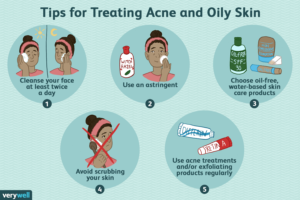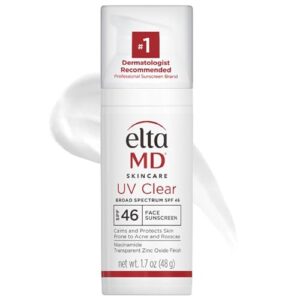To take care of dry skin, use gentle cleansers and moisturize regularly. Dry skin can be managed with a proper skincare routine and lifestyle adjustments.
Factors such as weather, harsh soaps, and hot showers can exacerbate dry skin. It’s important to choose hydrating products, protect the skin from harsh elements, and stay well-hydrated. We will explore effective ways to care for dry skin and discuss the best practices to keep your skin healthy and moisturized.
Whether you’re dealing with occasional dryness or a chronic skin condition, these tips will help you maintain a glowing and supple complexion. Let’s delve into the essential strategies for combating dry skin and achieving a nourished and radiant appearance.
Introduction of How to Take Care About Dry SkinTo Dry Skin Challenges
Dry skin can present a multitude of challenges, but with proper care, it can be managed effectively. Discover tips and techniques to nourish and hydrate your skin, ensuring a healthy and radiant complexion.
Dry skin is a common dermatological condition that affects many individuals. It can be characterized by a lack of moisture, resulting in a tight, rough, and sometimes itchy skin texture. Understanding the challenges associated with dry skin is crucial for effectively managing and improving its condition. In this section, we will explore the common symptoms experienced by those with dry skin and the various factors that contribute to its occurrence.
Common Symptoms
Dry skin manifests itself through a range of symptoms that can vary in intensity from person to person. Some of the most commonly experienced symptoms include:
- Tightness and a feeling of skin stiffness.
- Rough and flaky skin texture.
- Visible fine lines and cracks.
- Itching, which can sometimes lead to scratching and further skin damage.
- Redness and inflammation, particularly in severe cases.
These symptoms can not only be uncomfortable but also impact one’s self-esteem and overall well-being. By recognizing and addressing these symptoms, individuals can take steps to alleviate the challenges associated with dry skin.
Factors Contributing To Dryness
Dry skin can arise due to various internal and external factors. Understanding these contributing factors is essential in managing dry skin effectively. Some common factors include:
- Weather conditions: Cold, dry climates with low humidity levels can deplete the skin’s moisture content, leading to dryness.
- Harsh soaps and cleansers: Certain cleansing products can strip the skin of its natural oils, exacerbating dryness.
- Hot showers and baths: Prolonged exposure to hot water can dehydrate the skin, causing it to become dry and flaky.
- Age: As we age, our skin produces less oil and moisture, making it more prone to dryness.
- Genetics: Some individuals may have a genetic predisposition to dry skin, making it an inherited condition.
- Medical conditions: Certain medical conditions like eczema and psoriasis can contribute to dry skin.
- Medications: Certain medications, such as diuretics and retinoids, can have a drying effect on the skin.
By understanding these factors, individuals can make informed choices in their skincare routine and lifestyle to combat dryness effectively.
Managing dry skin is an ongoing process that requires consistent care and attention. In the upcoming sections of this blog post, we will explore various tips, remedies, and preventive measures that can help you keep your skin well-nourished, hydrated, and healthy. Stay tuned!
Skin Hydration Basics
Proper skin hydration is crucial for maintaining healthy skin, especially for those with dry skin. In this section, we will explore the fundamentals of skin hydration and how to keep your skin well-moisturized.
The Role Of The Skin Barrier
The skin barrier acts as a protective shield, preventing water loss and maintaining skin hydration.
Importance Of Water Balance
Ensuring optimal water balance in the skin is essential for maintaining its hydration levels.
Daily Skincare Routine For Dry Skin
Cleansing With Care
Choose a gentle, hydrating cleanser to avoid stripping the skin of its natural oils. Pat dry with a soft towel to prevent irritation.
Moisturizing Strategies
Apply a rich, emollient moisturizer to damp skin immediately after showering to lock in moisture. Consider using a night cream for added hydration while you sleep.
Sun Protection Essentials
Use a broad-spectrum sunscreen with at least SPF 30 daily, even on cloudy days. Reapply every two hours, especially after sweating or swimming.
Choosing The Right Products
Selecting the right products for dry skin care is crucial. Opt for gentle, hydrating cleansers and moisturizers with ingredients like hyaluronic acid and ceramides to replenish the skin’s moisture barrier. Look for products labeled as “fragrance-free” and “hypoallergenic” to avoid potential irritation.
Ingredients To Look For
When it comes to choosing the right products for dry skin, it’s essential to pay attention to the ingredients. Certain ingredients can provide much-needed hydration and nourishment to replenish and restore your skin’s moisture barrier. Look for the following key ingredients:
- Glycerin: This humectant attracts moisture from the air and helps to lock it into your skin, keeping it hydrated.
- Hyaluronic Acid: Known for its excellent water-retaining properties, hyaluronic acid can hold up to 1000 times its weight in water, providing intense hydration.
- Ceramides: These naturally occurring lipids help to strengthen the skin’s barrier function, preventing water loss and maintaining moisture.
- Natural Oils: Ingredients like jojoba oil, almond oil, or argan oil can help to nourish and moisturize the skin, leaving it soft and supple.
- Shea Butter: Rich in vitamins and fatty acids, shea butter is a great emollient that helps to moisturize and soothe dry skin.
Products To Avoid
While there are ingredients that can benefit dry skin, there are also certain products you should steer clear of, as they can further exacerbate dryness and irritation. Here are some products to avoid:
- Alcohol-based Products: Alcohol can strip the skin of its natural oils, leading to increased dryness and potential irritation.
- Fragrance: Artificial fragrances can be harsh on dry skin and may cause sensitivity or allergic reactions. Opt for fragrance-free options instead.
- Harsh Cleansers: Avoid cleansers that contain sulfates or other harsh detergents, as they can strip the skin’s natural oils and leave it feeling tight and dry.
- Exfoliants with Rough Particles: Stay away from exfoliating products that have coarse or sharp particles, as they can cause micro-tears in the skin and worsen dryness.
By being mindful of the ingredients in the products you choose and avoiding those that can be drying or irritating, you can effectively care for your dry skin. Look for products containing hydrating ingredients like glycerin, hyaluronic acid, ceramides, natural oils, and shea butter to provide the nourishment your skin needs. Additionally, remember to steer clear of alcohol-based products, fragrances, harsh cleansers, and exfoliants with rough particles to prevent further dryness and irritation.
Nutrition And Hydration
Dry skin can be a common and frustrating issue, but addressing it through nutrition and hydration can make a significant difference. By focusing on the foods you eat and your overall hydration, you can support your skin from the inside out, promoting a healthy and radiant complexion.
Best Foods For Skin Hydration
When it comes to hydrating your skin from within, certain foods can play a key role in maintaining moisture and promoting a glowing complexion. Some of the best foods for skin hydration include:
- Avocado: Rich in healthy fats that support skin elasticity
- Cucumber: High water content and silica promote hydration
- Tomatoes: Packed with antioxidants and high water content
- Coconut: Contains medium-chain fatty acids for skin hydration
- Berries: Blueberries, strawberries, and raspberries are high in antioxidants and water
Hydrating From The Inside Out
Ensuring your body is well-hydrated is essential for maintaining supple, healthy skin. In addition to consuming hydrating foods, remember to drink an adequate amount of water each day. Aim for at least eight glasses, or about 2 liters, to keep your skin hydrated from the inside out.

Credit: www.healthline.com
Professional Treatments
Discover professional treatments to effectively care for dry skin. Learn about moisturizing routines, hydrating products, and expert tips to restore your skin’s natural moisture balance. Say goodbye to dryness and hello to a radiant, nourished complexion.
Facials For Dry Skin
Dry skin can be a persistent issue, causing discomfort and dullness. Luckily, there are professional treatments available that can help alleviate these concerns. Facials specifically designed for dry skin can provide much-needed hydration and nourishment. These facials typically involve a combination of gentle exfoliation, moisturizing masks, and targeted serums to replenish moisture levels and restore a healthy glow to the skin.
Advanced Hydration Therapies
When it comes to combating dry skin, advanced hydration therapies can be highly effective. These treatments go beyond traditional moisturizers and delve deeper into the skin to provide intense hydration. One such therapy is hyaluronic acid injections, which can plump up the skin and lock in moisture. Another option is microdermabrasion, a non-invasive procedure that removes dead skin cells and stimulates collagen production, resulting in smoother and more hydrated skin.
Table: Professional Treatments For Dry Skin
| Treatment | Description |
|---|---|
| Facials for Dry Skin | Gentle exfoliation, moisturizing masks, and targeted serums to replenish moisture levels and restore a healthy glow. |
| Advanced Hydration Therapies | Hyaluronic acid injections to plump up the skin and lock in moisture, and microdermabrasion to remove dead skin cells and stimulate collagen production. |
In conclusion, professional treatments offer effective solutions for dry skin. Facials for dry skin provide deep hydration and nourishment, while advanced hydration therapies go beyond surface-level moisturization. By opting for these treatments, individuals with dry skin can experience improved moisture levels, enhanced skin texture, and a more radiant complexion. Don’t let dry skin hold you back—seek professional treatments and embrace a healthier, hydrated skin.
Seasonal Skincare Adjustments
Winter Care Tips
1. Use thicker moisturizers to combat dryness.
2. Take shorter, lukewarm showers to prevent further skin dehydration.
3. Apply a hydrating facial mask once a week for extra moisture.
Summer Skin Protection
1. Use a lightweight, oil-free sunscreen to protect from harmful UV rays.
2. Stay hydrated by drinking plenty of water throughout the day.
3. Wear protective clothing like hats and sunglasses to shield from sun exposure.
Lifestyle Factors Affecting Skin Hydration
Lifestyle factors play a crucial role in maintaining optimal skin hydration levels. Factors like sleep, exercise, and stress management can significantly impact the hydration of your skin.
Impact Of Sleep
Adequate sleep helps the skin to retain moisture and repair itself.
Exercise And Skin Health
Regular exercise improves blood flow to the skin, promoting hydration.
Stress Management
Reducing stress levels can prevent skin dehydration and maintain a healthy glow.
Home Remedies And Natural Solutions
When it comes to combating dry skin, home remedies and natural solutions can work wonders. From DIY hydrating masks to essential oils for skin care, here are some effective options:
Diy Hydrating Masks
Hydrating masks can help replenish moisture and restore a healthy glow to dry skin.
Essential Oils For Skin Care
Essential oils like jojoba and almond can nourish and hydrate dry skin effectively.

Credit: www.cleure.com
When To See A Dermatologist
If you are dealing with dry skin that doesn’t improve with regular moisturizing, it’s time to see a dermatologist. A specialist can provide personalized recommendations and prescribe medicated creams to help manage your dry skin effectively. Regular visits to a dermatologist can ensure that you are taking the best possible care of your skin.
- Unrelenting dryness, seek professional evaluation.
- Itching, flaking, or cracking skin persists.
- Severe discomfort despite home remedies.
- Consult a dermatologist for expert assessment.
- Specialized treatment for stubborn dry skin.
- Professional guidance on effective skincare regimen.

Credit: us.purefiji.com
Frequently Asked Questions
Q: What Causes Dry Skin?
A: Dry skin is caused by a lack of moisture in the skin. This can be due to genetics, aging, harsh soaps, hot showers, or cold weather.
Q: How Can I Prevent Dry Skin?
A: You can prevent dry skin by using a moisturizer regularly, avoiding hot showers, using a humidifier, drinking plenty of water, and wearing protective clothing in cold weather.
Q: What Are Some Natural Remedies For Dry Skin?
A: Natural remedies for dry skin include using coconut oil, olive oil, honey, aloe vera, and oatmeal. These ingredients can be used as moisturizers or in DIY face masks.
Q: How Often Should I Exfoliate Dry Skin?
A: It is recommended to exfoliate dry skin once or twice a week using a gentle exfoliator. Over-exfoliating can strip the skin of its natural oils and make dryness worse.
Conclusion
Taking care of dry skin requires a consistent and gentle approach. By following a daily skincare routine that includes gentle cleansing, moisturizing, and protection from the sun, you can keep your skin healthy and hydrated. Additionally, incorporating healthy habits such as staying hydrated and avoiding harsh chemicals can also make a significant difference.
Remember, taking care of your skin is an essential part of self-care, and with the right approach, you can achieve healthy, glowing skin.
To read our other posts click here
You can also visit Wikipedia




